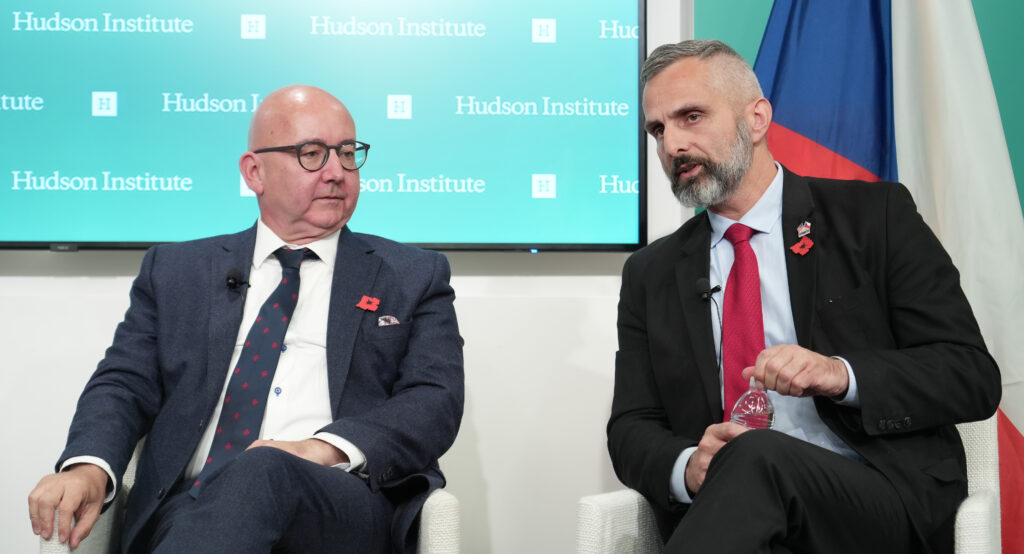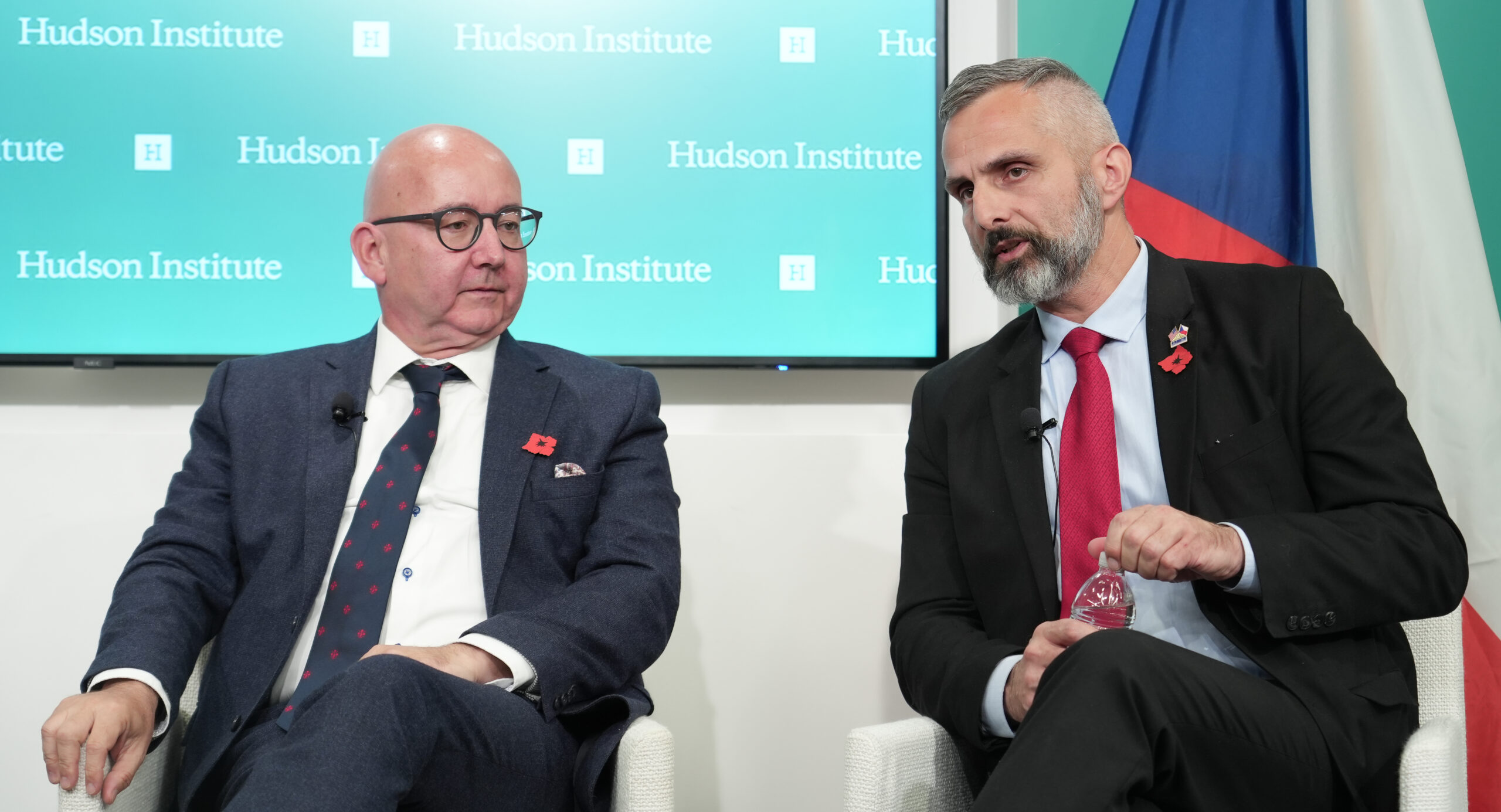On November 14, 2024, the Hudson Institute, in partnership with the Friends of Slovakia, American Friends of the Czech Republic (AFOCR) and the Embassies of the Czech and Slovak Republics, hosted the 25th annual Czech and Slovak Freedom Lecture. Titled “The Future: On Energy, Change, Innovation, and Democracy,” the lecture featured Senator Miroslav Bárta, a member of the Czech Parliament and professor of Egyptology at Charles University, and Colonel Otakar Foltýn, Deputy Chief of the Military Office of the President of the Czech Republic. Peter Rough, Senior Fellow and Director of the Center on Europe and Eurasia at the Hudson Institute, moderated the discussion.
The lecture explored the interplay between energy policy, technological innovation, and the resilience of democratic governance. Topics included the global shift to renewable energy, the transformative role of innovation in societal and economic development, and the implications for democratic institutions. Both speakers underscored the importance of international collaboration, especially among democratic nations, to address challenges, current threats, and advance sustainable development.
The event began with introductory remarks by Roger Kodat, President of AFOCR, who reflected on the historical significance of the date. On November 14, 1918, while in exile in the United States, Tomáš Garrigue Masaryk was elected as President of Czechoslovakia. Kodat highlighted the enduring legacy of Masaryk’s leadership in establishing a free, multinational, and multilingual state from the aftermath of World War I, drawing a poignant connection to the themes of freedom and innovation addressed in the lecture.


